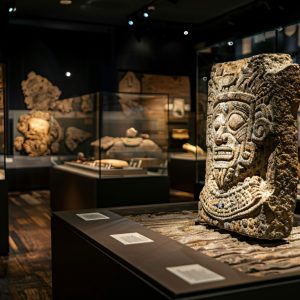
The Reproduction of Entrepreneurial Knowledge in Africa
The Reproduction of Entrepreneurial Knowledge in Africa ByIdris Adesanya Department of Philosophy University of Ibadan Africa’s crisis of economic underdevelopment
Shirley Williams became a full professor in 2003. She rode the wealth of her indigenous knowledge to that prestigious title. Now, at 85, she is a professor emeritus of Indigenous studies at Trent University in Canada. Hers is one testimony out of many that attitudes towards Indigenous knowledge are fast changing. And it is changing even in unexpected places!
The United Nations (UN) is clear about this fact when presenting the Sustainable Development Goals (SDGs). In the 2030 Agenda for Sustainable Development, the UN presents indigenous knowledge as complementary to mainstream approaches. It is no longer considered antithetical. This is a big win for all Indigenous peoples across the world.
For Africa, this development presents an important opportunity to promote our indigenous knowledge systems. African Indigenous communities have individuals like Shirley Williams in various aspects of life. However, Africa is yet to have systems that recognise such individuals as custodians of valid knowledge. The good thing is that local African institutions can lead the way in addressing this challenge, just as universities, institutes, and academies in other climes are doing.
To this end, the African Indigenous Knowledge Research Network (AIKRN) was formed as a network of African and Canadian universities. With its base at the Institute of African Studies, Carleton University in Canada, and with support from the Mastercard Foundation, the Network mobilises stakeholders to reflect on the present state of African indigenous knowledge systems. It challenges them to present convincing justification for the continued relevance of African Indigenous knowledge systems. AIKRN is an assembly of practitioners, researchers, research groups, institutions, non-governmental organizations and Indigenous communities that seek to demonstrate to the world with empirical evidence that African indigenous knowledge systems are no less knowledge systems. Interestingly, indigenous knowledge is gaining popularity elsewhere within the mainstream knowledge systems.
If this development says anything to us, it is that indigenous knowledge is not antithetical to scientific knowledge. Indigenous knowledge is neither mysticism nor superstition. It is knowledge with which people live and make sense of their daily lives. If African indigenous knowledge will thrive, it must find expression within our mainstream knowledge systems. It is encouraging that some African institutions are already working hard towards this.
One heartwarming example is the Indigenous Knowledge Systems Centre . It is a partnership of five South African universities: North-West, UNISA, Kwazulu-Natal, Limpopo, and Venda. The Centre explores “local skills, understandings, philosophies, technologies, and knowledge.” The universities use simple criteria to guide their activities. The communities that they study have unique knowledge and skills. The communities guide their daily lives with their local knowledge and skills. They use their skills to solve diverse problems. The problems include agriculture, natural disaster control, food security, and climate change.
Like these five South African universities, there are others scattered across the continent that are equally engaged in great indigenous knowledge initiatives. While individual efforts are great, Africa needs this indigenous knowledge collaboration now more than ever before. As a continent, we have spent some time chanting “African solutions to Africa’s problems.” As exciting as singing one’s praise could be, it does not solve one’s real-world problems. It is time we worked together to show the world that African solutions are indeed solutions.
Youth unemployment remains one of Africa’s wicked problems. As of 2023, more than 10 out of every 100 willing and able young Africans were unemployed. These young Africans are turning to the digital industries for productive employment. However, many of them do not know that there are job opportunities within African indigenous knowledge systems. Groups at AIKRN are already working hard to connect young Africans to these less-known opportunities. If you want to be part of this effort, you can join AIKRN here.

The Reproduction of Entrepreneurial Knowledge in Africa ByIdris Adesanya Department of Philosophy University of Ibadan Africa’s crisis of economic underdevelopment

Museums as Epistemic and Entrepreneurial Gateways By Olanike Onimisi Department of Theatre Arts University of Ibadan, Nigeria The traditions of

THE ÀDÌRẸ INDUSTRY: CRAFTING INDIGENOUS CULTURE INTO ENTREPRENEURSHIP By Adeshina Afolayan IBADAN RESEARCH WORKING GROUP, UNIVERSITY OF IBADAN Abẹ́òkúta is
The Africa Indigenous Knowledge Research Network was created to undertake research geared towards identifying, re-centering and harnessing Indigenous knowledge in Africa.
©2026 copyright africaindigenousresearch.com